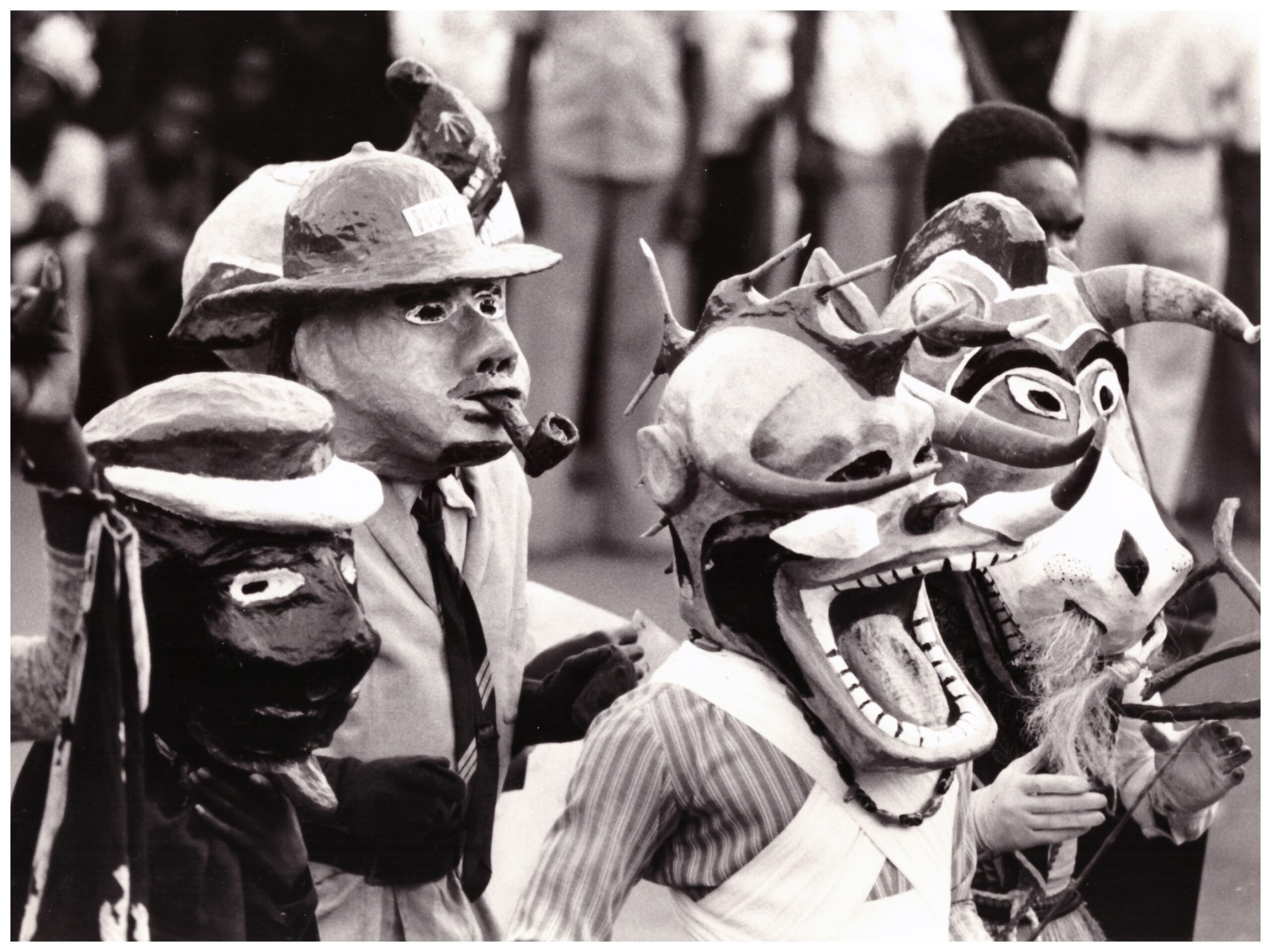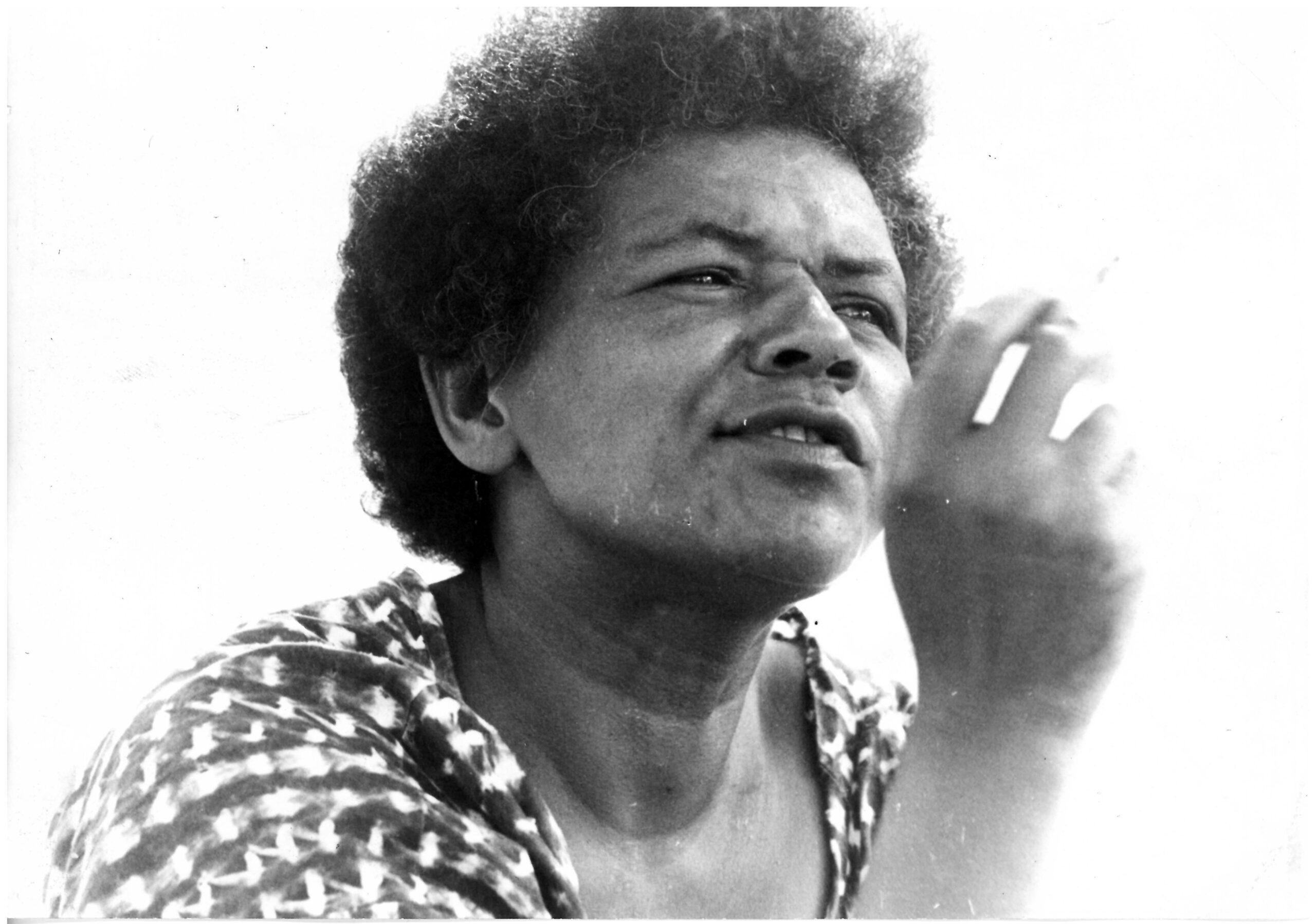
CARNIVAL IN THE SAHEL
France, Cape Verde | 1979 | 28 min | col. | o.v. French, Portuguese
Sarah Maldoror returned to Cape Verde to capture the carnival in Mindelo, where popular culture comes alive through masks, sounds, and dances. But this is not just about folklore: it’s a political act. The director observes without trespassing, letting the joy speak for itself. Each painted face, each glaring gown, each drum becomes an affirmation of identity. In spite of the lack of commentary, the film says a lot: the carnival becomes the symbol of a society reinventing itself, transforming the celebration into fighting and art into memory. Maldoror sings of a freedom that can be joyful, collective, and well-grounded. (L.F.)


